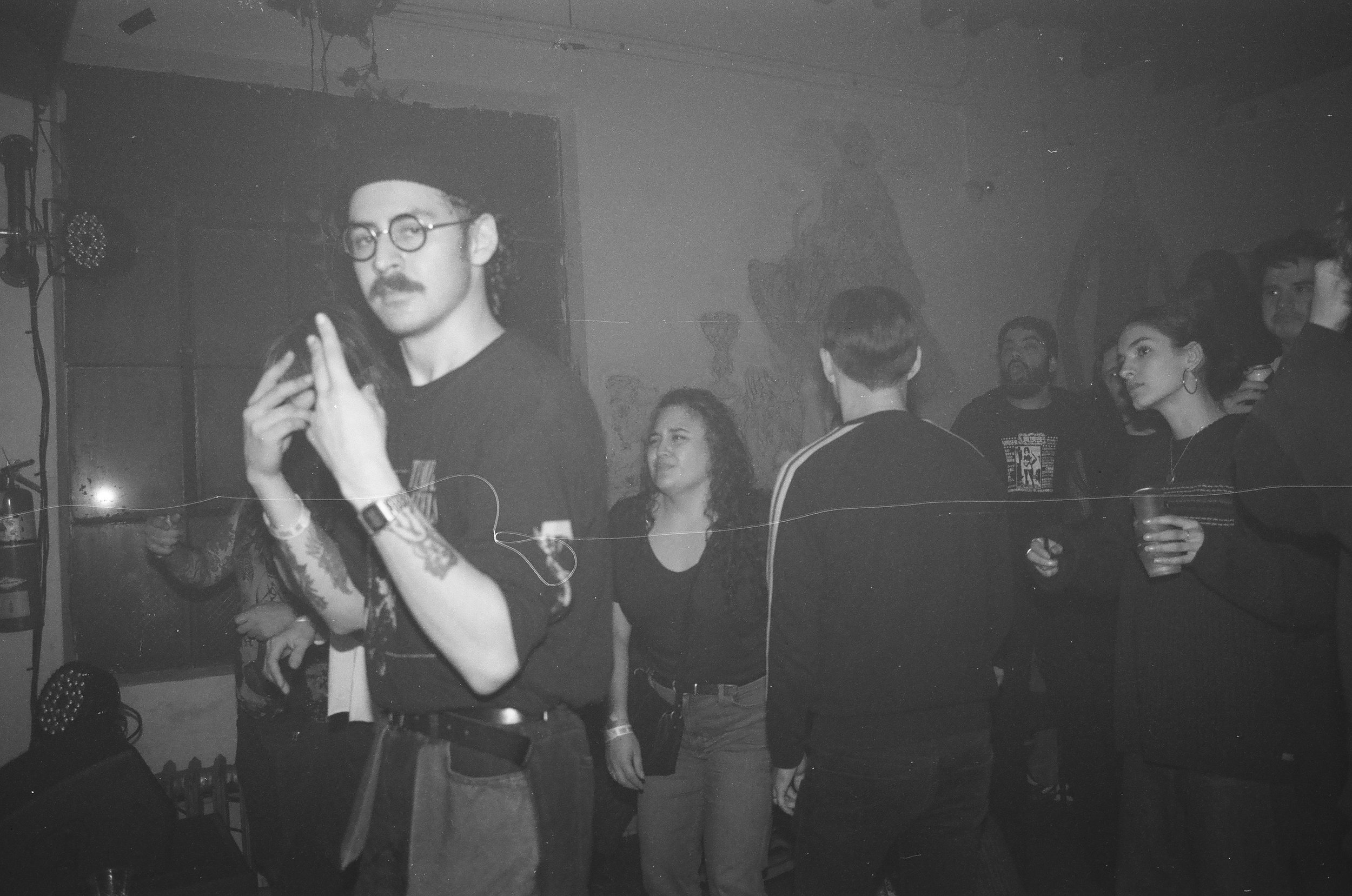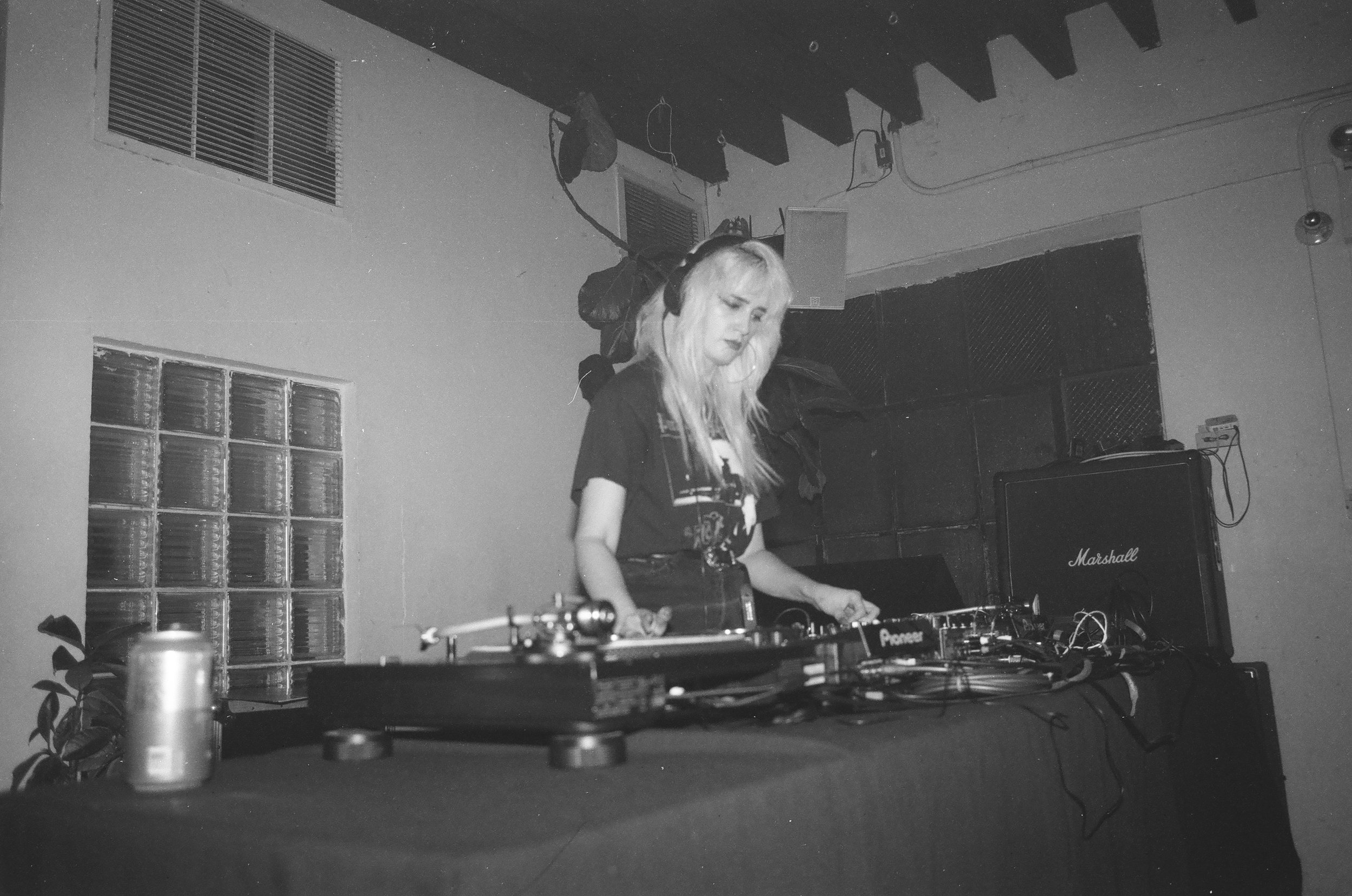Exploring Dark Dance New York City
Images courtesy of Naz Kawakami, Chelsea Shugert, and Alex Haggar.
Dark Dance is one of New York City’s favorite goth/darkwave dance parties, which sounds very niche, and that’s because it is.
It is a dance party for a specific group of people; people who don’t feel satisfied with the standard dance parties. It is a night for people who sway toward the darker genres over the Top 40’s you might typically (and painfully) find at most other New York City club nights. At Dark Dance, you won’t find remixes of Drake or ironic Y2K throwbacks. You won’t find influencers taking selfies for their vodka ambassadorship deal. You won’t find wealthy men in their late-20’s wearing Patagonia vests waiting for their Hinge date to arrive. You will find good electronic music, the rarity of people who are only and devotedly there to dance, and the absence of pretentiousness. For these reasons, Dark Dance is a bit of a sanctuary for the fun, dancing, entranced, macabre, lustful, estranged, campy youth.
Last weekend, we got lost in the thick orange fog of a Dark Dance party in Ridgewood, Queens, asked founder and organizer, Alex Haggar, a few questions, shot some photos, got drunk, and danced.
How long has this been going on?
The first party was around Halloween, 2018.
How and why?
I was just thinking about the genesis of the party. I think it goes back to my friends and I throwing a lot of themed parties back in college. A lot of us ended up in New York, so we just kept on doing it. I’ve always been into electronic music, but I got really into these darker, more obscure genres of dance music. It was really a party for friends at first, but as I’ve booked DJ’s and gotten to know more people, there is sort of a community of people here who really care about this music, so the party went from being for me and my friends to being about that community.
(listen to a playlist from Dark Dance featured DJ, Simple Pleasures, below)
How would you describe that community?
I mean, you’re talking about pretty obscure genres of music, so I find that everyone kind of knows each other. I’ll book a DJ who introduces me to another DJ, who have friends that attend the party who bring their friends. It’s a very fun, inclusive environment to be in.
What are your aspirations with this?
The party has definitely gotten bigger than I could have imagined. I don’t know that I’d ever want it to be like a thousand people in a warehouse type of rave. I know personally, I kind of prefer smaller venues. I would rather see a show at Warsaw than Madison Square Garden. I think inherently, the music is pretty niche, I don’t know that it has enough widespread appeal to even pack a warehouse. It might be interesting to dabble in a larger scale one day, but I like where we are at right now.
When you describe the music to people, what words do you use?
It’s really tough. I usually try to describe it as dark electronic music. Dark ‘80s electronic music. I like to jokingly describe it as ‘evil ‘80s’. One touch point I use a lot is Depeche Mode because a lot of people know that music. Not that this music necessarily sounds like Depeche Mode, but it’s an extension of that. There’s a lot of crossover. They’re definitely plugged into that scene.
What do you think is the draw of these parties?
It’s hard to say. I’ve been at shows where a DJ is playing some pretty darker, weird stuff, and the crowd is going absolutely nuts, so I think there’s this strange, primal draw to sort of darker, moodier music. I’ve been surprised by inviting friends where I don’t think it’s their thing, and they have a great time. Part of it for me is exposing people to this type of music. I think it’s under-appreciated. Plus, a lot of this music that we play and love - this music that came out in the mid to late ‘80s, is now influencing the club scene in Berlin. This music influences a lot of what’s relevant today.
Follow Dark Dance, here.




